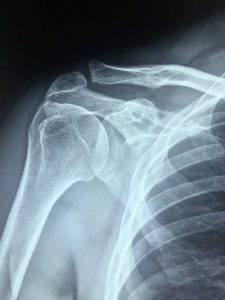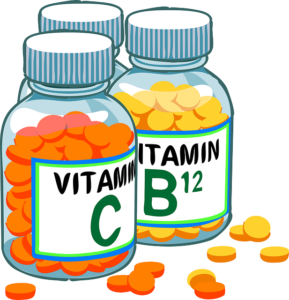The pain relieving specialist explains: Is there a link between medication for allergies and weight gain?
The medication of choice for allergies are usually: Antihistamines In Ireland, antihistamines can be freely purchased or are prescribed by a doctor. Anyone suffering from an allergy knows that antihistamines can be very helpful in relieving the symptoms of allergies. These drugs block the receptors for histamine in the body, thus preventing the “amine” from having its effects. Histamine is released by the cells of the immune system to trigger symptoms such as itching, rhinitis, tingling, etc. when dangerous pathogens enter the body. It is a protective system of the body.
However, an allergic reaction results in the excessive release of histamine from the cells of the immune system. The immune system then reacts to substances that are actually harmless to our body. Histamine also acts as a neurotransmitter in the brain. There it plays an important role in keeping us awake and preventing us from sleeping during the day.
The point why some of you are interested in the topic of this article comes now:
Histamine has an influence on the brain. For this reason, some antihistamines can make you tired and lead to drowsiness and inertia. Less exercise means less energy consumption means less basic metabolic rate of the body. What happens to calories that are absorbed but not consumed? These are stored e.g. on the hips and buttocks.
Study from 2010: based on the data of a survey of the “National Health and Nutrition Examination Survey (NHANES)” .Published in the “Journal of Obesity” .
-268 adults: medically prescribed antihistamine Zyrtec (cetirizine) or Allegra (fexofenadine)
-599 persons who do not take medication. The differences in body mass index (BMI), cholesterol and blood sugar levels were studied.
Results: People who took allergy pills had a higher BMI and waist circumference and higher insulin levels. The data suggest that there is a link between the use of antihistamines and higher body weight.
Male subjects (average): with – 97kg without – 87kg
Female subjects (average): with – 80kg without – 75kg
These data suggest that allergy tablets can affect fat loss or even lead to weight gain. To be fair, I would like to mention again that this was only an observational study (by questionnaire). It is always possible that a correlation does not necessarily mean that one factor causes the other. It could also be that a higher body weight and the allergy or the prescription of antihistamines are correlated due to a third, unknown factor.
Let’s take a quick look at the Neuroendocrinology: Histamine, as a neutrotransmitter, also controls appetite and hunger. As an antagonist of histamine receptors, antihistamines could cancel or inhibit this effect. The signal indicating satiation is inhibited. As a result, they can (indirectly) lead to an increased intake of calories, which in turn increases the build-up of body fat. ![]()
Together with the effect that some antihistamines make us tired and lethargic, they can make sure that we consume more calories than we burn. This is especially true of the 1st generation of this meds such as “Fexofenadine” or “Diphenhydramine” (Benadryl).
Even the 2nd generation of this meds, e.g. the popular “Cetirizine”, can have a mild effect on fatigue in the metabolism.
Solutions: If the symptoms of an allergy are so severe that antihistamines become unavoidable, special attention should be paid to the diet. It is advisable to take them in the evening to avoid fatigue. If the allergy symptoms are only mild and can be experienced without medication, this could be considered: Is this really necessary?
Under certain circumstances, an alternative treatment could be sought in the field of homeopathy.
Note: Alternatives to treatment should always be agreed in consultation with the treating doctor and should not be carried out on your own initiative. If I could give you some new food for thought. Very good. ![]()
Stay strong.
See you soon.
Matti













